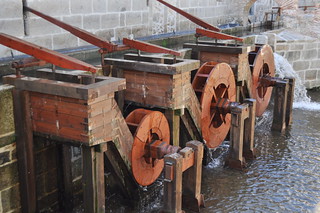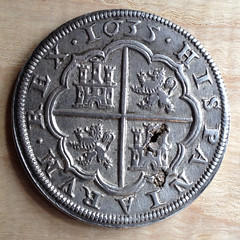
PREV ARTICLE
NEXT ARTICLE
FULL ISSUE
PREV FULL ISSUE
THE COINING HOUSE OF SEGOVIAThe restored Segovia Mint in Segovia, Spain is discussed in this brief recent Atlas Obscura article. -Editor 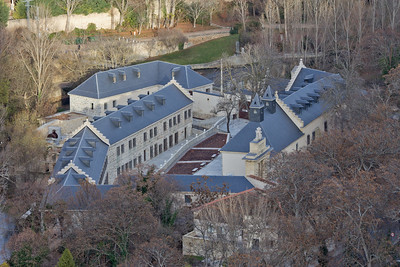
The Segovia Mint UNTIL THE MID-16TH-CENTURY, EUROPE'S MINTING techniques had not progressed from ancient Greek coinage, which was struck by hand using dies and a hammer. Eventually, this method became ineffective as a large amount of bullion was imported from across the world and the mints had trouble keeping up. To solve this problem, minting machinery was invented in 1550 based on Leonardo da Vinci's ideas and using hydraulic wheels. It was first adopted by France, followed by England in 1560, Spain, and the Holy Roman Empire. This "milled coinage" was produced in round shapes, unlike the often unevenly-shaped hammered coins. This made them harder to counterfeit. Spain's machinery-based mint, known as the Coining House of Segovia, was personally funded by King Philip II and completed in 1586. Philip needed the mint to convert silver from the Spanish colonies in South America to coins efficiently, producing the famous "pieces-of-eight" by the tons. This became the first mechanized factory constructed in Spain. While the Segovia mint was owned by the Royal House, other mints across Spain were run by the National Treasury. They continued hammered coinage for several decades.
In 1878, the mint was sold and renovated into a flour factory, which operated until 1967. The building was then abandoned until it was acquired by the municipality in 1987. Restoration work began three decades later, and it stands today as a museum exhibiting a fascinating collection of coins. It also highlights the history of Segovia and its famous aqueduct. E-Sylum contributor Gary Beals is a resident of Segovia and he kindly added these notes and images. Thanks! -Editor The Royal Mint of Segovia is well worth seeing. Someday when we can all travel where we want once again I hope some of your readers can visit Felipe II's big project here. Please give me a call or an e-mail when you come -- any friend of The E-Sylum is a friend of mine. Fellow Californian Glenn Murray, who also lives here in Segovia, was instrumental in restoring the mint back in the 1990s and early 2000s. He is the author of the principal catalog of Segovia coins and other books. Good health to all! 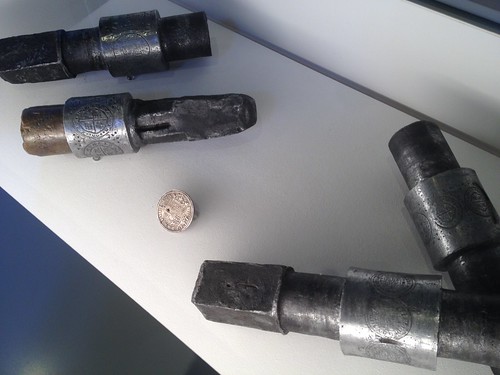
The roller die replicas on display 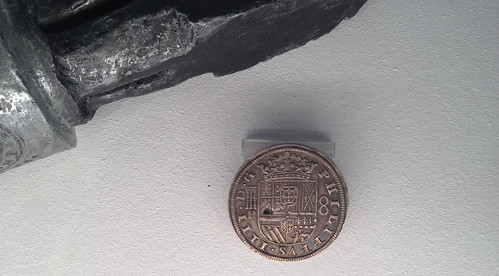
My 1635 8 reales is on loan to the mint museum. It has a rolling mill error in it.
To read the complete article, see:
For more information, see:
To read earlier E-Sylum articles, see:
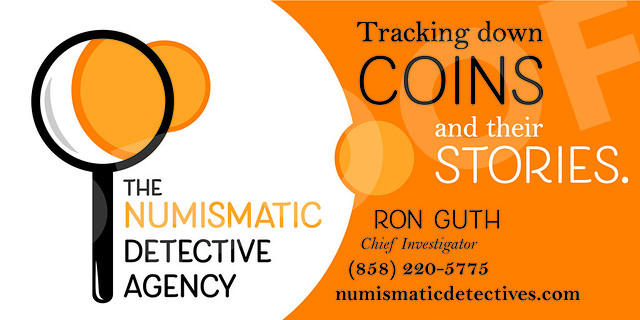
Wayne Homren, Editor The Numismatic Bibliomania Society is a non-profit organization promoting numismatic literature. See our web site at coinbooks.org. To submit items for publication in The E-Sylum, write to the Editor at this address: whomren@gmail.com To subscribe go to: https://my.binhost.com/lists/listinfo/esylum All Rights Reserved. NBS Home Page Contact the NBS webmaster 
|
